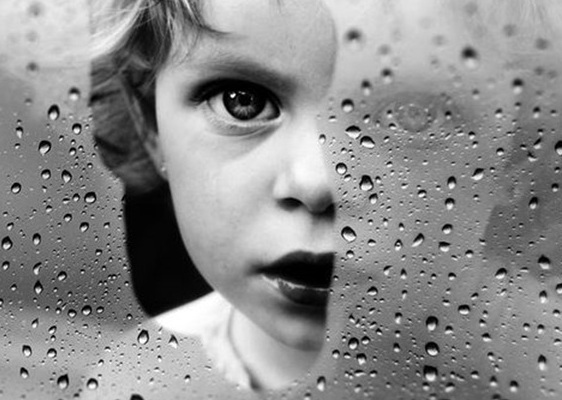End Judgement, Start Healing
“It’s the Holy Spirit’s job to convict, God’s job to judge, and my job to love.” –
Billy Graham
Often times we, as Christians, are some of the most judgmental people on the planet! This, in direct opposition to Christ’s injunction; “Do not judge and you will not be judged; and do not condemn, and you will not be condemned; pardon and you will be pardoned.” Luke 6:37-42
I am not talking about ‘using good judgment’. That is the stuff your worried mother counseled you to use as you walked out the door on a Friday evening in your hormone-riddled 17-year-old body on your way to pick up your -presumably – equally irrational date, whom your mother has never met. That is not the judgment we are talking about here. I, and your mother, both hope you are still exercising that good judgment.
What I am talking about here is the judgment wherein you look at another and you find them wanting. You are looking down on them. You have placed them below you somehow assigning value to others from a position of superiority. You have placed yourself in a one-up position, climbed up in the Judgment Seat and taken the gavel out of the hand of God.
Having served among our hurting and the broken neighbors for almost 40 years, Jesus’ words make more sense with each passing year. From neurological and psychological perspectives, judging the person struggling in the morass of addiction or dysfunction only serves to keep him/her stuck in the destructive isolation of that addiction.
Judgment, or un-acceptance, of a person who experienced abuse or neglect as a child dysregulates brain function (engages limbic response {fight, flight, freeze, or people-please}) thereby preventing the person from exercising their mental executive function (the prefrontal cortex of your brain) which is the key to healthy cognitive processing.
In a very real and mental way, our judgment of the dysfunctional individual only serves to throw fuel on the flames of their dysfunction – it’s like handing a person a boatload of shame.
James asks the rhetorical question “. . . who are you who judge your neighbor?” James 4:11-12.
If judging others is so unhelpful that Jesus repeatedly warns us against it, then why do we continue to judge others?Maybe judgment is so deeply embedded within us because we experience it as self-protection (faulty and ineffective self-protection to be sure, but it feels so good – in a petty and righteous sort of way).
It’s Not You, It’s Me
The degree I judge others directly correlates to, and flows out of, my insecurities, brokenness, and need for control.
The Apostle Paul nails it: “. . .for in that which you judge another, you condemn yourself.”
Ouch. Got me. In the heart.
Any time I find myself judging another I know I need to go stand in front of a mirror with some uncomfortable questions and an extra large helping of curious compassion.
“What the hell was that about?” “What’s got my panties in such a wad?”
When I judge someone my judgment says more about me than it ever does about the person I am judging. When serving those who battle deeply entrenched addictions, the key that allows healing and transformation is revolutionarily simple: Love.
For the individual stuck in addiction and dysfunction the brain is locked in deep ruts of destructive thinking, which the individual experiences and processes as ‘self-protective’. The key that allows the brain the relief to decouple from it’s “normal” destructive/addictive cycle occurs when the brain knows and feels it is accepted as it is, loved unconditionally.
“The essence of any healing and nurturing relationship is an authentic acceptance of the other for who they are.” – Gabor Mate
It is so important for us to be safe people. So safe that others are willing to live authentically with us. So safe they are compelled to live with nothing hidden. So safe they are willing to bring out all the skeletons in theirclosets.
I think that is why Jesus brought out The Woman at the Well’s troubling life: so that she knew that he knew so that she could know His love was the real deal.
If she didn’t know He knew all the dirt, well then Satan could always throw down the shame-card;
“Yeah, Jesus said He loves you but if He knew about all those men, tsk, tsk, tsk,” as he shakes his head in a shaming sort of way, “and the one your living with now . . . oh my.”
Yep, Jesus had to bring out the dirty laundry in order to clean it all up so that she could know in her heart of hearts that the Savior of the world truly and deeply loved her.
The Safety Dance

Feeling safe is the foundation upon which a transformed life can begin to be built. For the person who was habitually hurt as a child, either through neglect or abuse, it is a constant struggle to feel safe with others.
“Imprinted in the developing brain circuitry of the child subjected to abuse or neglect is a deep distrust of powerful people, especially caregivers.” (italics mine, because as a pastor, I am one.)
When I try to fix you, I have not accepted you as you are. I am not loving you unconditionally. When I offer advice I am not accepting you as you are. I am not loving you unconditionally.
On the other side of that coin is: When I feel you are not accepting me as I am, I do not feel safe.
Painfully Simple
Every day it is our job to work at creating this safe zone for – well, the good of everyone – but especially for those who are stuck in the ruts of dysfunction.
Dr. Bruce Perry, child psychiatrist and researcher puts it this way:
“If we create environments that are safe and predictable and relationally enriched, then all of the other factors involved in substance abuse and dependence will be so much easier to dissolve away. Our challenge is to figure out how to create these environments. We really need, and I know it sounds kind of corny, we need to be very loving, very accepting, and very patient with people who have these problems. And if we are, they will have a much higher probability of getting better.”
Judgment is the opposite of acceptance. Judgment is the polar opposite of unconditional love.
Judgment is plain unhelpful.
Unhelpful to the other.
Unhelpful for me.

By Cash Lowe
Organizational Chaplain, Shepherd’s House Ministries


